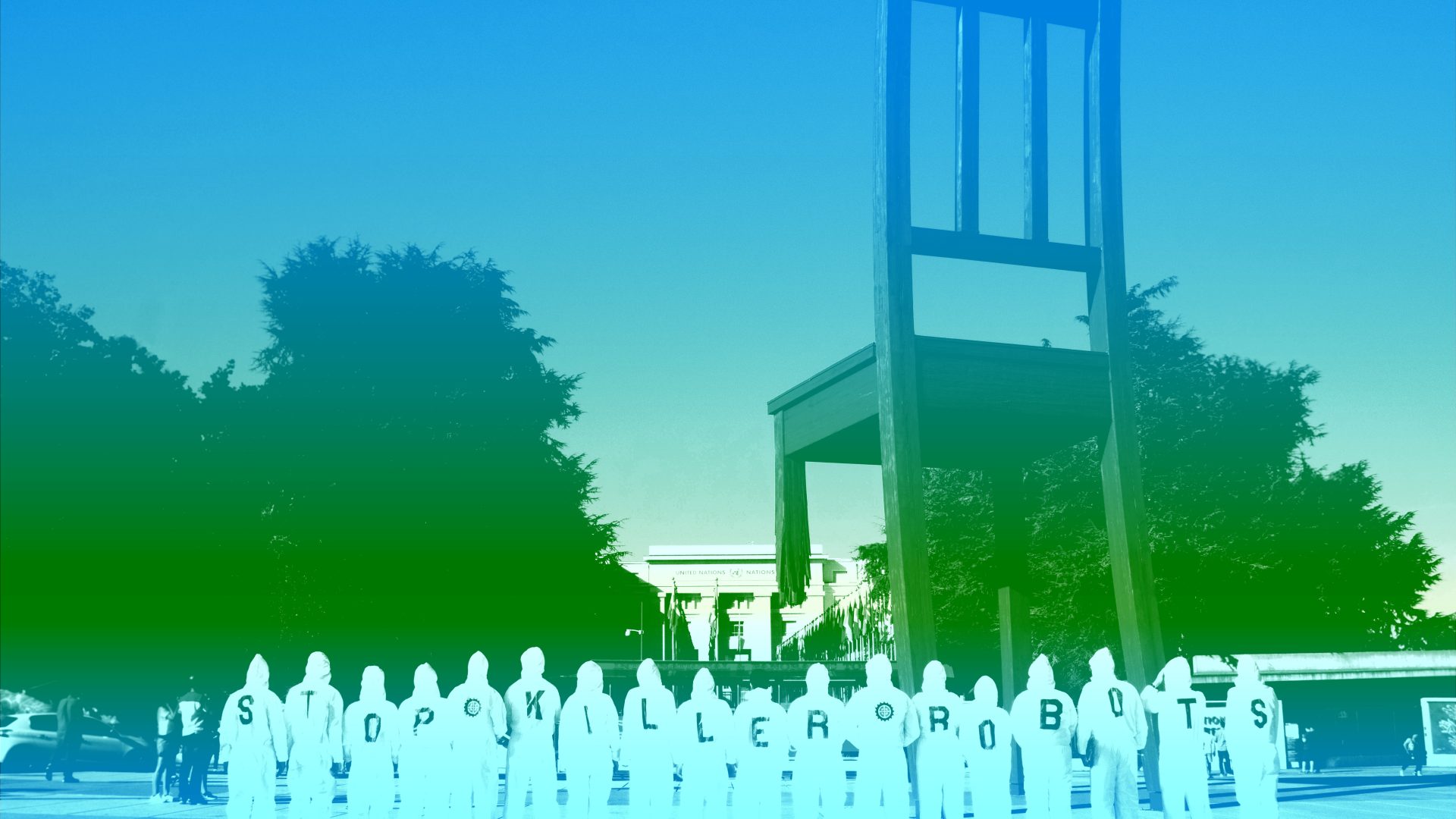
Stop Killer Robots looks forward to UN General Assembly as CCW continues to stall
The second session of the 2024 Group of Governmental Experts (GGE) of the Convention on Certain Conventional Weapons (CCW) on autonomous weapons systems (AWS) took place from 26-30 August but there is little to show for it.
This GGE meeting followed a momentous few months that saw the largest international conference on AWS outside of the UN in Vienna and the publication of the United Nations (UN) Secretary-General’s report on AWS. While the GGE agreed to continue to consider possible elements of some sort of instrument back in 2023, the group is not mandated to adopt or submit a report until the Seventh Review Conference of the CCW slated for 2026. Despite the Secretary-General’s finding that “time is running out for the international community to take preventive action on this [AWS] issue,” the GGE continues to chug along at a pace that is wholly incommensurate with the urgent risks posed by AWS.
Ahead of the meeting, GGE Chair Ambassador Robert in den Bosch of the Netherlands circulated a constructive rolling text to serve as the basis of the week’s discussion. The rolling text contained many useful facets of states’ convergence on different elements that should be agreed in regulation, which often remain unreflected in the group’s previous consensus-based reports. However, key aspects of what is needed in an international legal treaty that ensures meaningful human control over the use of force were missing from this text, including prohibitions on autonomous weapons that target people and considerations of ethical concerns and human rights. Unfortunately, as with other sessions of the GGE, useful and progressive language contained in the rolling text was unable to survive the week.
After the Chair’s opening remarks, the Russian Federation took the floor to state that, in their interpretation of the rules of procedure, observers like Non-Government Organizations (NGOs) and regional organizations must not take the floor during official plenary sessions, refrain from “politicising” work, and avoid making any accusations against state parties. This has followed a worrying trend to further restrict civil society participation in multilateral forums by using the rules of procedure to limit meaningful participation in interactive discussions and to censor what observers can include in their statements. The inclusion of civil society and other observers in these processes is essential to ensuring transparency and the sharing of expertise and knowledge.
In our statement, Stop Killer Robots echoed the call of the UN Secretary-General for states to urgently negotiate new law by 2026 and commended those states that have committed to pursue negotiations and shown leadership in convening regional and international conferences. We also urged states to adopt a resolution mandating negotiations at the UN General Assembly (UNGA) this October, as the CCW continues to demonstrate it is a forum that is incapable of producing the legally binding instrument we so urgently need.
The discussion on the “working characterization of LAWS” section of the rolling text lasted nearly three days, with two new text iterations of this section being shared with delegations on 27 and 28 August. While the first version of this section included useful language to characterize a working understanding of autonomous weapons, drawing broad alignment with the scope proposed by the International Committee of the Red Cross (ICRC) and the policy position of Stop Killer Robots, and the inclusion of weapons systems that “…require only nominal human input after activation…,” the red lines quickly piled up. In the final hours of the last day of the meeting, a third iteration of the text produced after private consultations with only a small select group of states was presented to the group. The dissatisfaction from the room as a whole was palpable. But with only an hour of meeting time left and no outcome report required this session, the final minutes of discussions on the new text felt futile. This final day was reminiscent of past GGE meetings where an eleventh-hour text is presented in the name of consensus, but ends up reflecting the most regressive positions of a small minority of states in the room. The Chair has committed to continuing discussions in the intersessional period.
After years of discussion at the CCW, it is past time for states to take meaningful action to address the pressing challenges posed by killer robots in a forum where progress cannot be blocked by a small minority. It is clear that the UNGA, with its near universal membership, is a forum where AWS can be holistically and comprehensively addressed – negotiations of a legally binding instrument here will save lives and draw legal red lines for humanity that we desperately need.


